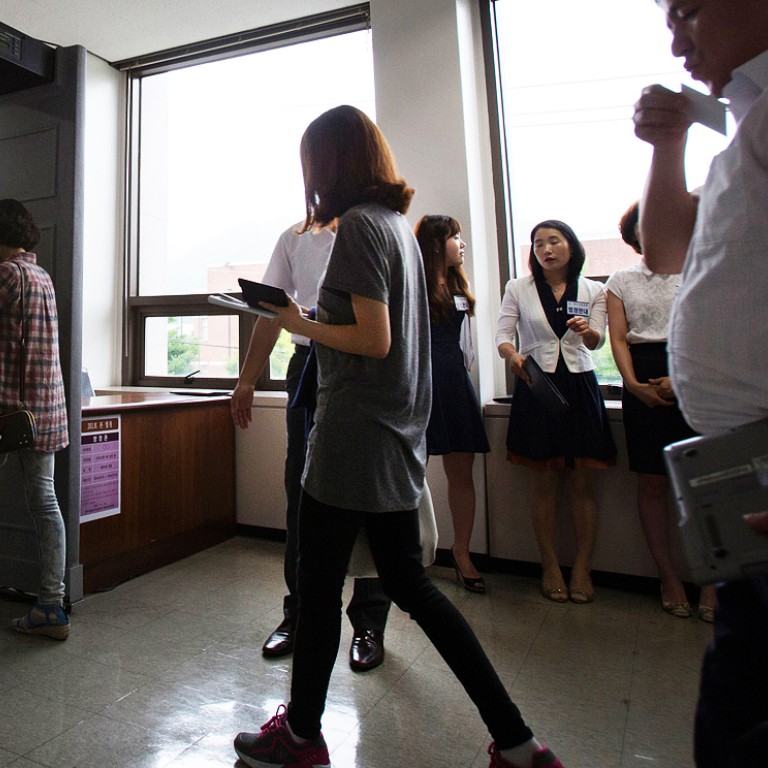
Student survivors to testify in South Korea ferry disaster trial
A special session is being held for student survivors of South Korea’s ferry disaster to testify in the trial of the captain and crew, who are charged with criminal negligence and abandoning the passengers in the disaster.
Student survivors of South Korea’s ferry disaster will testify in the trial of the captain and crew in a special session at a courtroom in their traumatised home town, a district court ruled on Tuesday.
The court in Gwangju, 265 kilometres south of Seoul, said the decision had been made to spare the students any further stress.
The ruling came as the court began to hear evidence in the trial of the captain and 14 crew, who are charged with criminal negligence and abandoning the passengers of the Sewol ferry which capsized and sank on April 16 with the loss of nearly 300 lives.
Among the dead were around 250 students from the same high school in Ansan city just south of Seoul.
Captain Lee Joon-seok and three senior crew members are accused of “homicide through wilful negligence” - a charge that can carry the death penalty.
The 11 other defendants are being tried on lesser violations of maritime law.
Some 50 witnesses are expected to give evidence and the court said the students’ testimony would be given during a special session at a court in Ansan.
“This decision was taken in consideration of the students who live in the Ansan area and may have difficulty travelling such a long distance in the aftermath of the accident,” a court statement said.
The session will take place between July 28-30 and will be closed to the public to protect the students’ “privacy and mental well-being”, it said.
Most of the 75 students who survived the disaster were set to return to normal classes at Dawon High School on Wednesday.
It was not clear how many had chosen to testify in the trial.
The bulk of the charges against the crew arise from the fact that Lee and the others chose to abandon the 6,825-tonne ferry while hundreds of people were still trapped inside the heavily listing vessel before it capsized.
They were also condemned for ordering the passengers to remain where they were when the ship began listing.
A handful of crew members who stayed and tried to guide passengers to safety were among those who died.
Captain Lee’s lawyer has vowed to challenge the homicide charge, citing the absence of any criminal intent on the part of his client.
The start of the trial’s evidentiary stage on Tuesday coincided with the recovery of another victim from the submerged ferry.
It was the first body to be retrieved from the interior of the vessel in 16 days.
The body was of a female student and brings the total number of confirmed victims to 293, with 11 still unaccounted for.
The recovery operation has dragged on for more than two months, with the body retrieval rate falling off rapidly since the beginning of June.
Two divers have been killed and voices have begun to be heard calling for heavy cranes to be brought in to lift the sunken vessel.
Relatives of those still missing insist all the bodies must be recovered first, despite indications that some may have been carried away by the strong currents in the area.
The tragedy stunned South Korea, knocking the entire country off its stride and unleashing a wave of public anger, as it emerged that incompetence, corruption and greed had all contributed to the scale of the disaster.
Lee and his crew were publicly vilified in the wake of the tragedy, and there been some expressions of concern about how fair their trial can be in such a charged atmosphere.

.png?itok=arIb17P0)